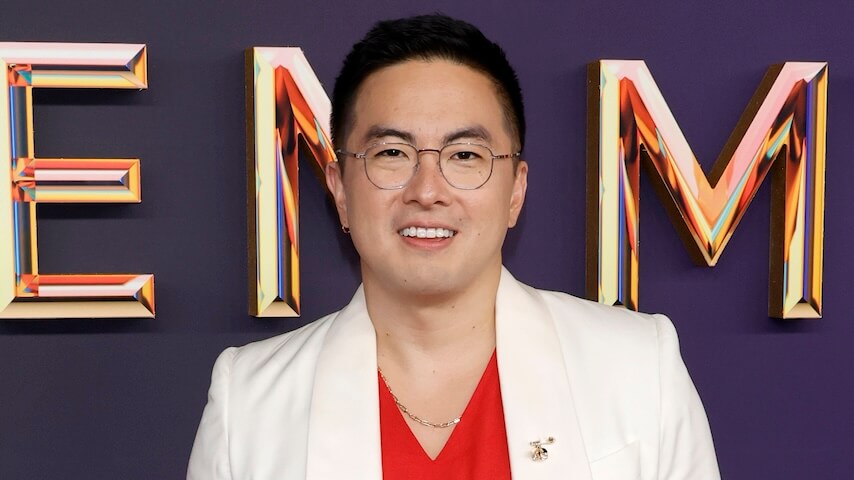Bowen Yang didn't want to get pigeonholed as Saturday Night Live's "woke scold"
Through no fault of his own, Bowen Yang became a lightning rod for comedy discourse from the moment he was hired at Saturday Night Live
Frazer Harrison/Getty Images
If you’re a fan of Bowen Yang and/or his podcast Las Culturistas, the new New Yorker profile of the comic is essential reading. It chronicles Yang’s occasionally harrowing journey to becoming a breakout comedy star, from growing up with immigrant parents to being sent to conversion therapy to his creative partnership with Matt Rogers. But of course, it was Saturday Night Live that sent him to the stratosphere, where he became not only a star in his own right but a lightning rod for discourse in a divisive comedy atmosphere.
That started day one, when he found himself “incidental to this big national story about cancel culture” when his fellow new hire Shane Gillis was fired after jokes resurfaced that were deemed racist and homophobic. For his part, Yang had been working in the SNL writers’ room, and Lorne Michaels told him he “had to make sure you knew how the show worked before I put you on camera,” as Yang recalled. But there was no way to prepare for getting caught up in Gillis’ crossfire. Michaels reached out again to assure Yang, “I don’t need you to be the poster child for racial harmony.” Yang in turn reached out to Gillis, who called back and apologized. “I ended the call by saying, ‘I guess I’ll just see you at work,'” Yang shared. “He laughed and said, ‘Sure,’ and hung up. Then they announced that he was fired.”
Yang got to stay at SNL and make his mark, but the controversy—and the sense that he was being pitted against other, less politically correct comics—lingered. This past season, he made headlines for his reaction to Dave Chappelle hopping on stage for an episode’s good nights (Chappelle was not the episode’s host). “I was just uncomfortable on other people’s behalf,” he told the New Yorker. “It wasn’t this big protest.” Not long after, Gillis, whose work remains provocative, returned as a host, and Yang felt himself getting cast as the show’s “woke scold,” hyper-aware of fans watching for his reaction.
“It’s taught me about my place on the show being kind of strange and unique,” Yang said, demonstrating a deep knowledge of the series: “I never expected to be a Nora Dunn being furious that an Andrew Dice Clay is there.” But those frustrations didn’t lead Yang to walk away from the show; instead, he’s gotten better at distinguishing between the show and “what people say about the show.” Though fame continues to be overwhelming and Yang is still figuring out how to navigate pop culture as a fixture, rather than a commentator, he’s happy at SNL. “I hope this is not the Stockholm syndrome talking,” he said, “but it is still a great place to work.” You can read the full profile here.